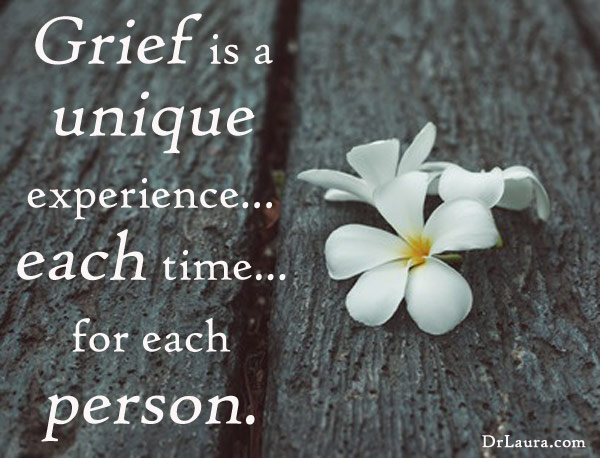|
July 23, 2015
Grieving the Loss of a Loved One Years ago on my show, I got a call from a woman who had recently lost her child. She was upset because her husband wasn't crying. Instead, he was shoveling snow in the front of the house, running errands, and doing chores. And since she was a complete wreck and he wasn't, she thought he must not care. I told her she couldn't be more wrong. We all deal with death in different ways. Crying is an important part of the grieving process for many people, but not crying doesn't mean you're a cold and calloused person. For example, men and women generally handle loss differently. Men, by and large, cope by doing. You don't see men sobbing on the front lines or running into burning buildings with tears streaming down their faces. They take care of business. It doesn't mean they're emotionally constipated - they are just built differently. (It's interesting to note how people say that a man needs to get in touch with his feminine side, but they don't tell a woman to get in touch with her masculine side). Another reason you might not cry is that you weren't close to the deceased person, even if they were a parent or sibling. In fact, it might even be a relief. For instance, if they had Alzheimer's and didn't know you anymore, then you were already grieving their loss long before they took their last breath. If you don't cry, it doesn't mean you don't care - it simply means you're exhausted. You may also feel relieved if they were a cruel, evil or destructive person. Although you don't want to admit it, you feel a great weight lifted because they are no longer around to cause you pain. And if you do cry, it's probably because the dream of having that person be warm and cuddly has died with them. The only time grieving is an issue is when you embrace it as your new identity. If you isolate yourself, stop doing regular activities, or refuse to take care of yourself, you are sinking into depression. It means the loss of that person has pulled the scaffolding out of your life and psychological work needs to be done.  Posted by Staff at 12:01 AM |